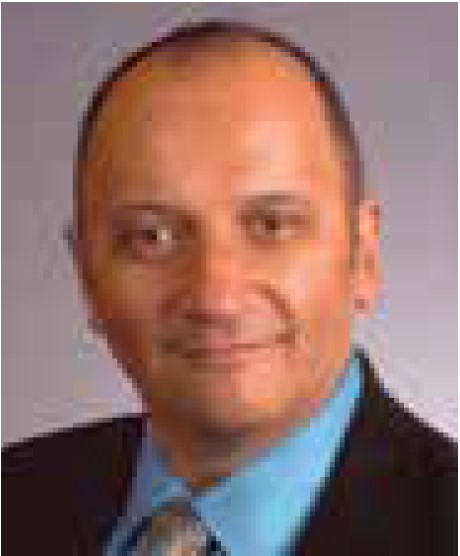
By Eduardo Morales, Ph.D.–
A challenge among Spanish-speaking nations in Latin America is that the language references all things in a binary gender form: masculine or feminine, since everything is expressed with reference to a binary gender. The history of indigenous populations in Latin America, however, reveals that the notion of a third gender or two-spirit individuals was once widespread, predating Spanish colonialism.
People who identified as having two spirits were given a place within the communities of indigenous people—and still are. In Zapotec cultures of Oaxaca in southern Mexico, for example, muxe refers to an individual who is assigned male at birth but who dresses and behaves in ways that are often associated with women. A population of muxesis celebrated in the Oaxacan town of Istmo de Tehuantepec, where they are an important part of the community. There and at certain other places, muxes work to prepare traditional fiestas; make costumes for baptisms, communions, quiceañeras (15th birthday parties), and weddings; and craft church decorations. They also often dedicate themselves to creating art and handicrafts to sell at markets.
According to Marinella Miano Borruso, in an article entitled “Entre lo local y lo global. Los Muxes en el siglo XXI ” (“Between Local and Global: Muxes in the 21st Century”): “An important difference with urban Western sexual culture is that for Zapotecs, only sexual relationships between a muxe and a heterosexual male have meaning. A large presence of muxe can be found in the Mexican state of Oaxaca. Even though some locals still discriminate against muxes, and the muxe community as a whole has less opportunity to study and gain employment, the traditional indigenous division of three genders as a natural and traditional way of being has inspired the LGBT scene around the world. Relations between muxes or between a muxe and a gay man don’t make sense, in fact they are even inconceivable. No muxe would sleep with a man who considers himself gay.”
Muxes nevertheless are often fully involved in the struggle for LGBT rights. According to Ola Synowiec, a muxe from Juchitán named Amaranta Gómez Regalado was a local candidate in the elections for the Mexican Congress. Even though she didn’t get enough votes, she became famously known as the first transsexual candidate of Mexico. As of 2018, she was involved in politics, especially in campaigns against homophobia and for HIV/AIDS prevention.
Synowiec shared: “For the Mexican and international gay community, Juchitán has become a queer paradise and a symbol of tolerance. Even though some locals still discriminate against muxes, and the muxe community as a whole has less opportunity to study and gain employment, the traditional indigenous division of three genders as a natural and traditional way of being has inspired the LGBT scene around the world—and muxes are becoming aware of it.”
Mexico City was the first Latin American capital to legalize same-sex marriage, and according to Mexico’s laws, recognition of marriages in one city or county in the country must be recognized nationwide. Although Mexico has this impressive history as well as the presence of muxe culture, the country sadly has one of the highest rates of crimes globally against the LGBT community, with an estimated 202 people being murdered due to homophobia between January 2014 and December 2016 alone.
According to a report prepared for the Office of Refugee Resettlement of the U.S. Department of Health and Human Services by Heartland Alliance (2012), between 3.8% and 4.6% of refugee and asylum seekers are LGBT. The San Francisco Asylum Office estimates that 5% to 10% of claims filed in that office are based on sexual orientation or gender identity. The lack of uniformity of tolerance and acceptance of LGBT people in the U.S. makes detailed estimates very difficult. Many LGBT refugees and those seeking asylum often feel vulnerable even in our own systems where U.S. processing representatives may assume LGBTs can
return to their country, provided they relocate within their country, become discreet, and avoid being targets of violence.
As they apply for proper documentation, there are challenges in accessing public assistance, healthcare, housing, employment, and social support systems for their well-being and survival. According to the Heartland Alliance report in 2012, more than 90% of the acts of violence are directed toward gay males. Little is known about lesbians experiencing violence.
The dialogue about transgender issues is quite complex. It appears we have much to learn from the indigenous cultures in Latin America. How they incorporate the concept of a third gender as a social gender of two spirits is a valuable framework for us to consider when we contemplate the variety of gender expressions.
Eduardo Morales, Ph.D. is a Professor Emeritus, retired Distinguished Professor, and current adjunct professor at Alliant International University. He is also a licensed psychologist and a founder and current Executive Director of AGUILAS, an award-winning program for Latinx LGBTQ+. Of Puerto Rican decent, he has received numerous distinguished awards and citations, including being named a Fellow of 12 divisions of the American Psychological Association.
Nuestra Voz
Published on April 20, 2023
Recent Comments